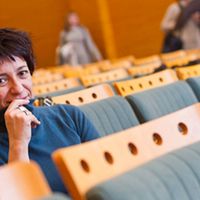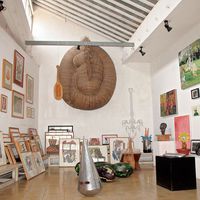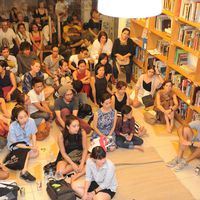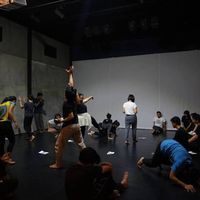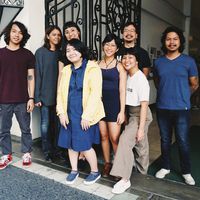In conversation with Antariksa I Co-founder of KUNCI Cultural Studies Centre, Yogyakarta, Indonesia
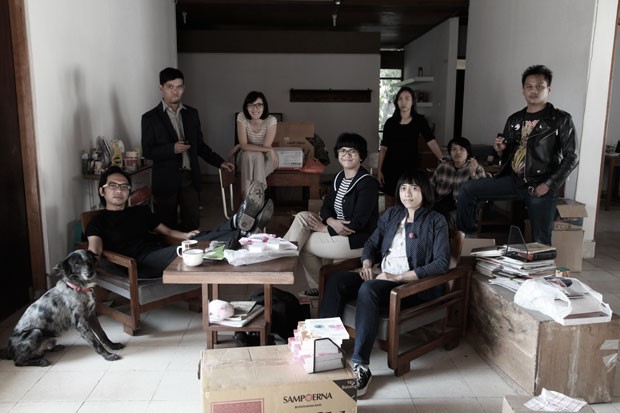
Yogyakarta-based historian, researcher and co-founding member of KUNCI Cultural Studies Center, Antariksa is working to create an Indonesian society that is culturally critical, open, and empowered.
KUNCI has been deeply preoccupied with critical knowledge production and sharing through means of media publication, cross-disciplinary encounter, action-research, artistic intervention and vernacular education within and across community space.
David Fernandez (DF): How would you describe KUNCI?
Antariksa (A): In short, we are a research collective. We have nine members at this time, all with very different backgrounds, from a historian to an anthropologist, to an artist, to a philosopher as well as several activists and educators. Since the beginning of KUNCI, which was founded back in 1999, we have aimed to build bridges and connections between different fields of study with focus on intersections between theory and practice, precisely in three areas: arts, culture and research.
DF: What was set out to achieve when KUNCI was founded?
A: After a long period of active student and social movement in Indonesia, Nuraini Juliastuti and I decided to open our own cultural platform in Yogyakarta. Instead of joining other fellow students and activists which follow their political ambitions in Jakarta, we were more interested in arts, culture and particularly in research so we opted to stay and open our own research center.
The idea behind establishing an independent platform away from the official academia was mainly because at that time our trust in the art university was very limited. Mainly due to the fact that all the education institutions back then, especially those related to the arts and culture, were mostly supported and strictly controlled by the military regime.
DF: How do you see the evolution of KUNCI as a research platform?
A: We started with only two members. We are now in our forties but the younger members of KUNCI are in their mid-twenties. There’s an intergenerational gap. We were very much into political and social movements when we first started. Now it doesn’t seem the case anymore. The younger members have very different ideas of politics. To witness and experience how our organization has grown throughout the years, it is very interesting and enriching.
In terms of research, since the beginning, we have always been very open to experimentation. Particularly in the past five years we have been focusing greatly into the concept of schooling and alternative education. One of our big dreams is in fact to create our own school. Meanwhile, while we build this project, we are still continuing our research in different subjects, of course.
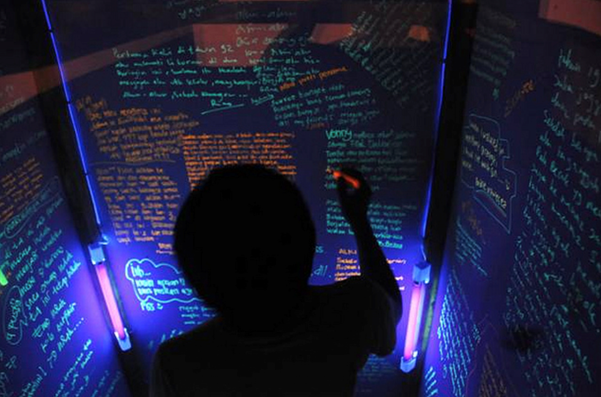
DF: What are your plans for the future of KUNCI, do you have any specific goals you would like to attain in the future?
A: As I mentioned before, we are currently working to establish our own school, an alternative educational initiative under the name of the School of Improper Education. We don’t want to compete with existing models of education, for instance in the arts or other disciplines and fields of study. Clearly, there’s no point to come to us to receive any formal education, since we don’t have the capacity to offer a degree. Our objective is to explore different models, we are still experimenting, creating models of education that will combine both theoretical knowledge – art theory, history, sociology- and practical skills –making arts, electronics, crafts-, as well as other less formal aptitudes, we can tell ‘surviving skills’, such as gardening, cooking, martial arts and other connecting with community projects. We have already done research for the last two years on different education models, now we are starting to experiment. At this stage, truth is, we don’t know how to do it, we still need time to experiment with this idea and models and foresee possible outcomes.
DF: What type of audience does KUNCI usually attract?
A: Yogyakarta is a renowned student city where the artists traditionally have a big role to play. Therefore, the main audience of our programs are younger generations, but we also try to engage with other local low and middle-class residents, namely through participatory programs, depending on the themes and topics. The collective’s membership is open and voluntary. We facilitate a wide range of community-led activities, including discussions, screenings, presentations as well as keep our library resources to everyone, all year long.
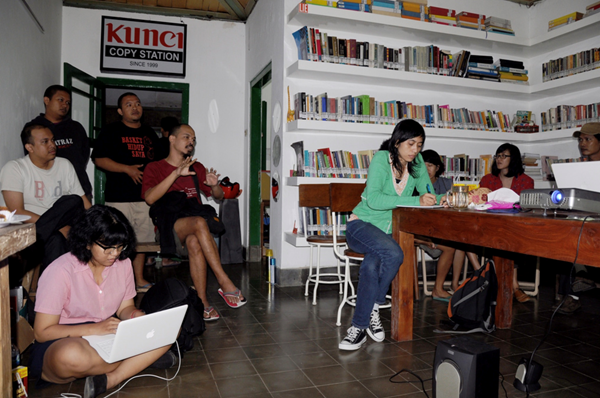
DF: What’s the main purpose of your platform?
A: Our mission is to develop cultural studies with a spirit of experimentation and to advance its criticality into a wider movement through popular education practices.
DF: Why is KUNCI important in the Yogyakarta scene?
A: Back in the nineties, the idea of interdisciplinary creative experimentation was simply non-existent. For example, if you were an artist and you wanted to do a research in history it was impossible, you didn’t have the right tools. Also, the other way around. If you were a historian or an anthropologist, it was hard to be able to put together an art exhibition. Organizations like KUNCI were necessary and helped making this interdisciplinary dialogue possible. Simultaneously, we aim to keep sharing resources with the public in a disregulated way, always preserving the face to face interaction.
We believe our organization still has a role to play in the coming years because we feel the connection between artists, institutions and other members of the local community is still quite loose, so we think we can actively help society evolve while fostering this collaboration and strengthening this cross-disciplinary conversation.
DF: What is Yogyakarta's art & cultural scene like nowadays? How would you describe the local creative community?
A: One of the biggest issues we are facing as an arts & culture community in Yogyakarta nowadays is undoubtedly gentrification. It’s getting very hard for the numerous local art collectives to have a physical space. The city is quite cosmopolitan but very traditional at the same time. We believe physical encounters are the most important ways of human interaction. As a result, people from outside the city are buying properties and re-shaping the landscape of the city, still the spirit remains but I feel the city is becoming more commercialized. Because of this, slowly the mindset is also changing, how people behave and interact with each other. Of course, the art community is ultimately affected, some they see as an opportunity while others see as a threat.
Regarding the creative community, I believe it’s very genuine indeed, deep-rooted in Javanese philosophy. Collectivism is a Javanese principle, we feel if we can do it together, why do you do it by yourself? It’s very Javanese, we don’t need to invite people to work together, it’s something automatic.
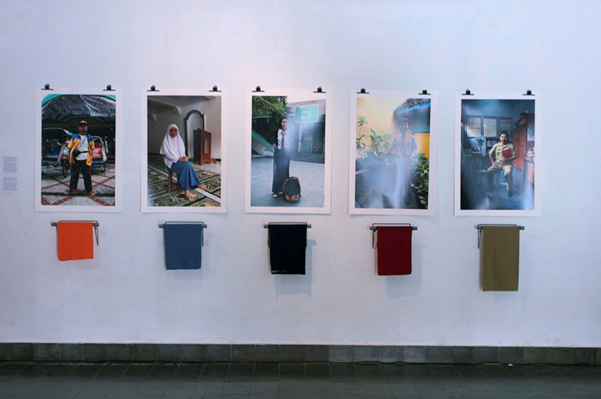
To find out more about the KUNCI Cultural Studies Centre please visit: http://kunci.or.id/
___
David Fernández is a Spanish-born contributing writer working in South East Asia for nearly a decade. Currently working as freelance arts & cultural project manager and digital media consultant around the region, he is also the co-founder of Cho Why multi-disciplinary project space in Bangkok, Thailand. He previously co-founded Le Cool Bangkok arts & culture webzine and worked as content director.
Similar content
19 Jul 2016

